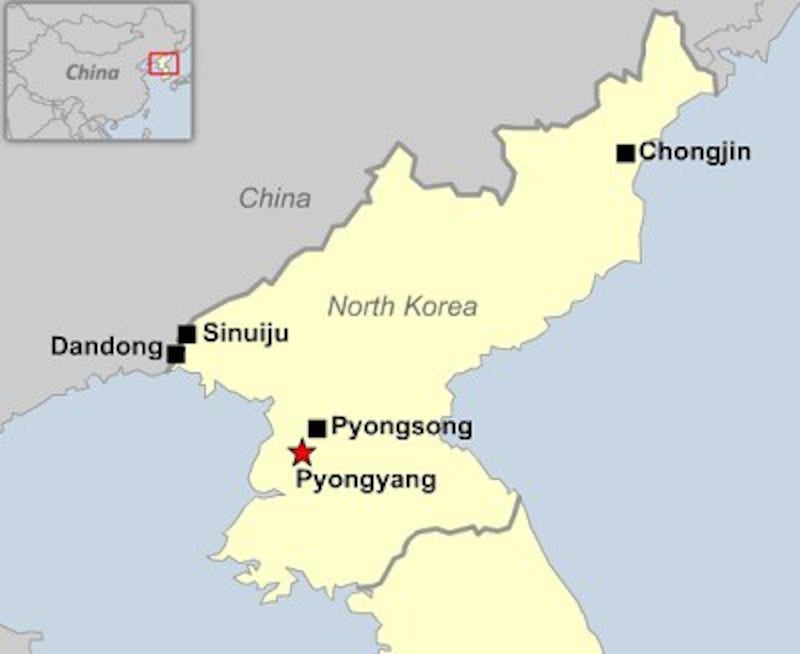With public train service in North Korea painfully slow, privately operated long-distance bus services have stepped in to fill a demand for speedier travel, running a reliable system that offers trips up to three times as fast as by rail, sources from the reclusive country said.
North Korea has 6,000 kilometers (3,700 miles) of track connecting its cities, with a link to China’s rail network at Sinuiju which supports a thriving border trade between the two countries.
But plagued by a chronic lack of electricity and outdated equipment, North Korea’s public train service moves at a snail’s pace, with schedules offering infrequent trips and trains often stopping for hours in the middle of a journey.
Busy travelers and merchants eager to get to their destinations rely instead on private buses, which sources said provide more comfortable journeys at a far faster pace—particularly during the rice-planting season in May and June, when more electricity is reserved for farms.
One North Korean told RFA’s Korean Service while on a visit to China that a trip from Sinuiju to Chongjin in North Korea’s northeast takes about a week by train but only two days by private bus, making the bus three times faster than the train.
“The train from Sinuiju in North Pyongan province to Chongjin in North Hamgyong province operates once a week due to the lack of electricity,” said the source, who gave only his surname Han.
“But the private bus is faster than the train by about five days.”

“It takes about two days from Sinuiju to Chongjin by private bus,” he said.
The Sinuiju-Chongjin bus route is faster than the train even though passengers cannot travel directly and must transfer at Pyongsong, a city north of the capital that has emerged as a long-distance transit hub for a thriving network of routes run by private entrepreneurs.
Unofficial system
The routes are part of a system that runs entirely privately without official sanction, with operators obtaining used vehicles from China.
Han said the privately operated bus system emerged about 10 years ago as private businessmen stepped in to fill a demand for faster transport that North Korea’s authoritarian government did not have the capacity to handle.
“The North Korean government doesn’t have the ability to operate express buses,” he said.
“In the early 2000s, individuals who had money started the private bus business and this network formed naturally,” he said.
Even if authorities wanted to crack down on the unofficial, private bus system, they would have trouble doing so because of the sheer number of people who rely on it, a North Korean trader from Chagang province surnamed Bang told RFA.
“The government might not be able to control it because complaints about slow transport are a major factor,” he said.
“The North Korean government has closed off businesses like karaoke parlors and restaurants to prevent capitalism from spreading, but the government can’t touch the private buses.”
Nevertheless, authorities do have a hand in the private bus business, and bus line operators must be influential individuals with solid backing from officials, he said.
Operators register their vehicles with the state enterprise and give them a cut of the profits, according to Bang.
“If someone who doesn’t have power runs a private bus, it may be confiscated overnight.”
Operators, who charge anywhere from the equivalent of U.S. $14 to $25 for a long-distance trip, buy their vehicles for about U.S. $10,000 from China, he said.
Bang said the private buses were a comfortable alternative to the train.
“There is a double-decker bus for long-distances. Loads are put on the roof and in the cargo area below the seats, and people can watch movies and sing songs while they’re riding on the bus.”
Reported by Young Jung for RFA’s Korean Service. Translated by Jina Lee. Written in English by Rachel Vandenbrink.
